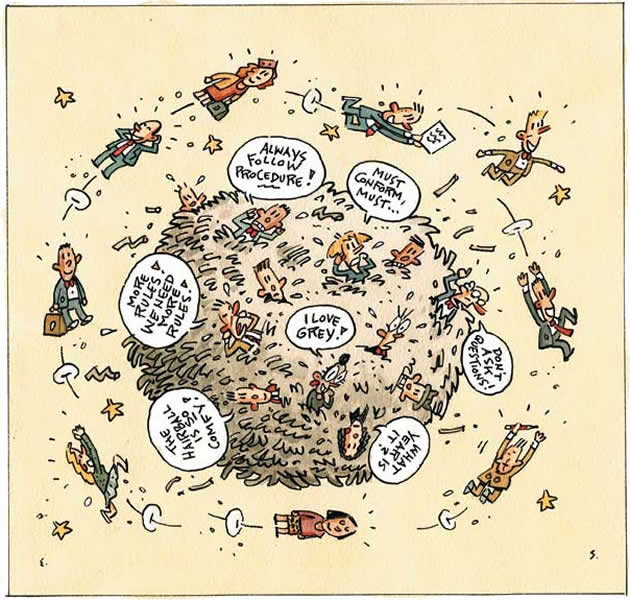ThinkParking?
The value of systems thinking is that it is what I call "content agnostic" or "topically agnostic"-- meaning, it can be applied to any area of life, regardless of topic or discipline, or level of complexity or importance. Our ThinkWater program, for example, helps researchers, extension associates and water educators to learn and apply systems thinking to wicked water problems. I sometimes imagine that we could have thousands of programs like ThinkWater...ThinkSustainability, ThinkSTEM (which we already have), ThinkParenting, ThinkBusiness, ThinkPolitics, ThinkEnergy, ThinkDesign...the list goes on.
But ThinkParking? Yup, even parking.
In the new book, Systems Thinking Made Simple we talk a lot about solving the world's wicked problems using systems thinking, but we also show that systems thinking helps us solve or avoid everyday problems, develop better humans, and better organizations. For example, people and organizations that avoid creating problems in the first place. In fact, systems thinking is deeply correlated with psychological and sociological development.[1] So, let's look at a simple everyday example of systems thinking in action.
Here's an example of how systems thinking could be used for parking better.
-
First,
perspective. Do I take the perspectives of others as I move through the world? -
Second,
distinctions. Am I making distinctions (say, between parking space and sidewalk)? -
Third,
relationships. How do my actions effect others (say, someone in a wheelchair, an elderly person, a couple holding hands on the sidewalk, or any person whose knee-span exceeds 4 inches)? -
Fourth,
systems. Am I part of a larger whole or do I exist in isolation? For example, are there other people in the world that I'm sharing it with, or is it just me? Does my parking behavior reflect the mental model I have?
ThinkParking... it could be a thing.
-
Look for our soon to be published article in the special issue of the peer-reviewed journal Systems Research and Behavioral Sciences: Cabrera, D., Cabrera, L. and Powers, E. (2015) A Unifying Theory of Systems Thinking with Psychosocial Applications. Systems Research and Behavioral Science. Published online in Wiley Online Library (wileyonlinelibrary.com) DOI: 10.1002/sres.2351 ↩︎
.png?width=150&height=150&name=CRL%20GOAT%20Logo%20(4).png)


